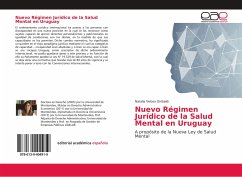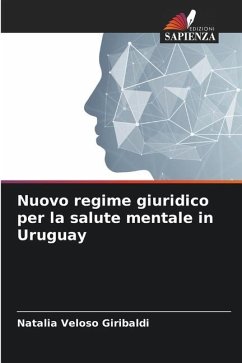
New Legal Regime for Mental Health in Uruguay
Versandkostenfrei!
Versandfertig in 1-2 Wochen
26,99 €
inkl. MwSt.

PAYBACK Punkte
13 °P sammeln!
The international legal system has placed persons with disabilities in a new position in which they are recognised as subjects capable of exercising personal and property rights on an equal footing with others, to the extent that their capacities allow them to do so. This normative change has meant a break with the old legal paradigm in which the categories of capacity - incapacity were absolute and one was either capable or incapable. Uruguay, as a subscriber to this international legal system, could not remain outside this process and, as a result, its Parliament passed Law No. 19.529 on Men...
The international legal system has placed persons with disabilities in a new position in which they are recognised as subjects capable of exercising personal and property rights on an equal footing with others, to the extent that their capacities allow them to do so. This normative change has meant a break with the old legal paradigm in which the categories of capacity - incapacity were absolute and one was either capable or incapable. Uruguay, as a subscriber to this international legal system, could not remain outside this process and, as a result, its Parliament passed Law No. 19.529 on Mental Health, which leaves behind a regulation that had been in force for more than 80 years and attempts to bring it into line with the International Conventions.












